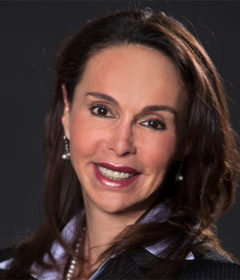Exonerated man talks with Stetson Law students
John Thompson spent 18 years in prison and 14 years on death row before being exonerated of a crime he did not commit. On Jan. 26, Thompson shared his experiences with Stetson University College of Law students and spoke about the importance of responsibility and accountability.
“Now is the time for you to decide what you will stand for,” Thompson told the students. Thompson explained how he was accused and convicted of murder and the subsequent years he spent fighting the conviction and death sentence.
“His story tells us about what can go wrong with lawyering, from prosecution to defense,” Professor Judith Scully explained. Scully, the Wm. Reece Smith Jr. Distinguished Professor of Law, directs the Innocence Initiative at Stetson, which assigns students to research potential cases for the Innocence Project of Florida and to work on legislative reform and educational outreach.“John’s story illustrates the importance of confronting injustices and having courage as attorneys.”
After Thompson was exonerated of his crimes, a lower court ruled in a civil case that prosecutorial evidence occurred in his case and awarded him millions of dollars. However, the Supreme Court reversed that decision, explaining that it saw no pattern of prosecutorial misconduct, and the $14 million jury verdict was reversed.
Thompson said the attorney in his civil case risked his own finances and ambitions to follow his conscience to do what was right. He told the students that lawyers have a responsibility to ask questions, to address issues, to listen to their clients and to do the best that they can do at the end of the day.
“When you hear the word ‘exoneree,’ you should hear the word ‘victim.’ Are we ready to stand up and represent victims?” Thompson asked.
Howard Williams, a third-year law student, said that he was inspired by Mr. Thompson’s story.
“I would like to go into criminal law upon graduation, and Mr. Thompson’s words resonated very strongly with me because he may be the type of client that I have one day as an attorney,” Williams said. “To think that he almost died because of dishonest and ineffective lawyering reminds me of the power that attorneys possess and that is something that I will not take lightly. Mr. Thompson’s message reaffirmed the whole reason that I came to law school, which was to try and be a voice for those who need the most.”
Student Gabe Neibergall, who works with the Innocence Initiative at Stetson, said, “In my opinion, Mr. Thompson’s most powerful point was that we all choose to become lawyers, and by making that choice, we are now obligated to stand up for what is right- no matter the personal and professional costs. This seemed to be Mr. Thompson’s idea of true ‘honor,’ and it is something we should all strive to embody.”
After leaving prison, Thompson said that he had an unusually smooth transition. He said he worked with lawyers at the Death Penalty Resource Center to help people on death row. Habitat for Humanity built him a house and a writer worked with him on a book about his experiences. The story of Thompson’s wrongful conviction is told in the book, Killing Time: An 18-Year Odyssey from Death Row to Freedom.
Today, Thompson is the founder and director of Resurrection After Exoneration, a supportive residential program that provides exonerees and long-term prisoners reentering society a transitional home and work environment.
Thompson presented this year’s Wm. Reece Smith Jr. Distinguished Lecture at Stetson Law’s annual Inns of Court, an adopted tradition that brings together prominent lawyers, experienced teachers and law students to exchange ideas.



